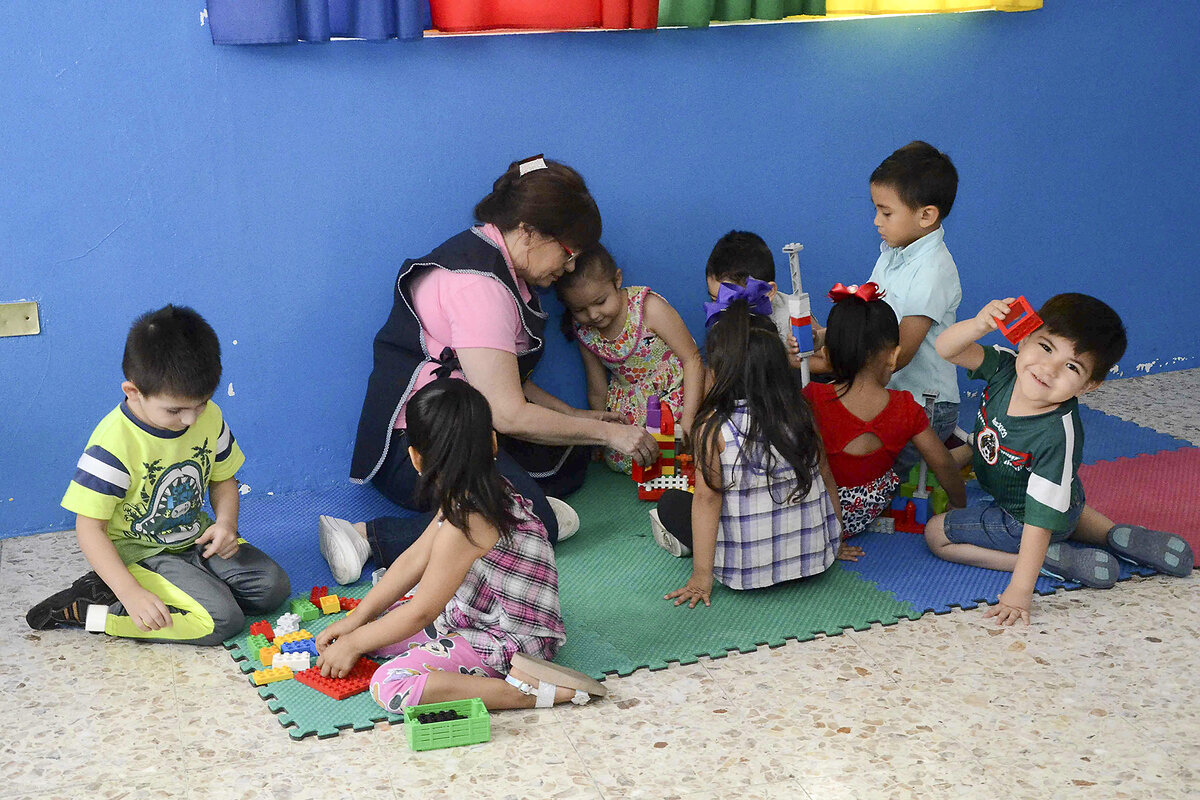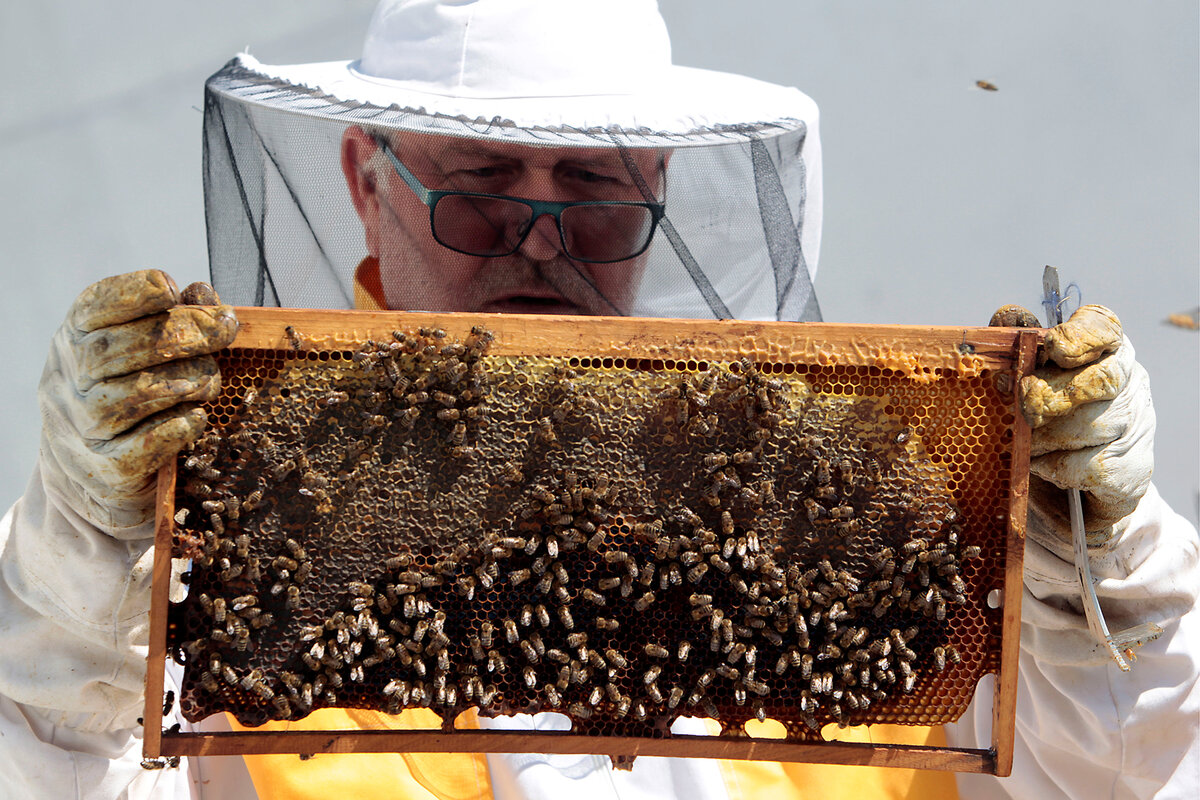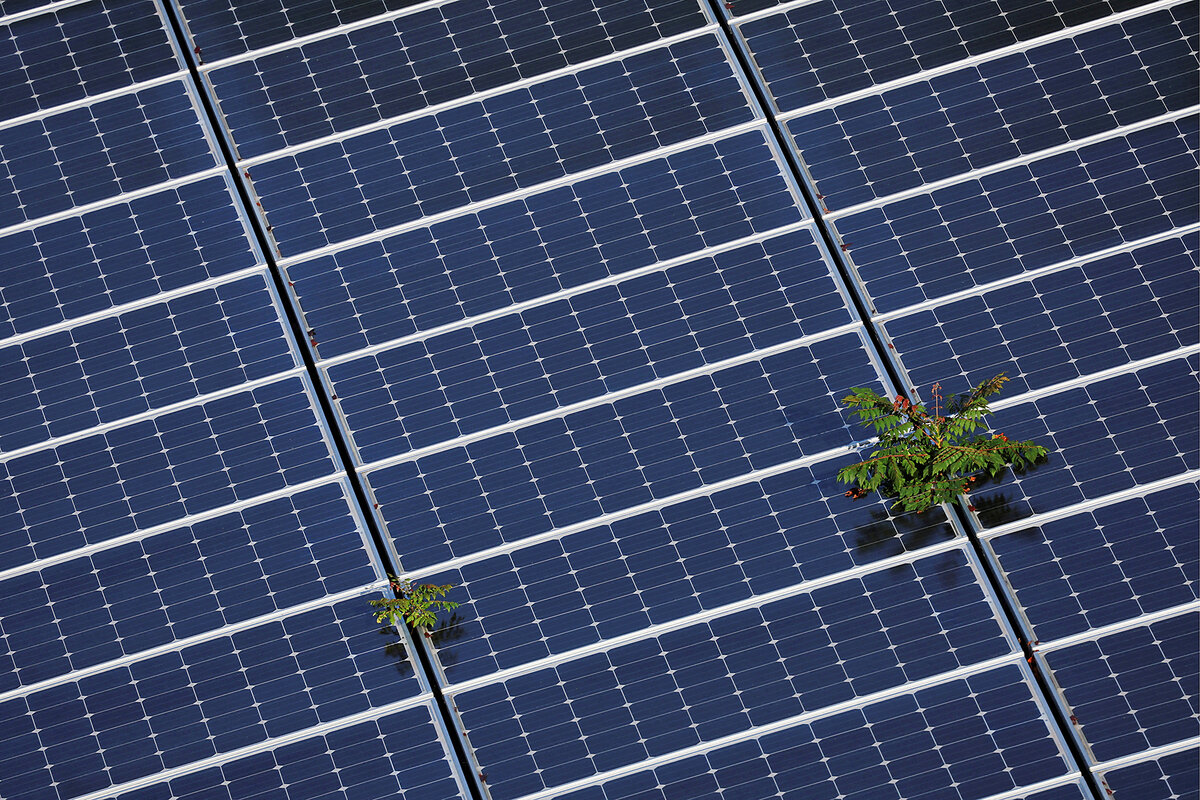Why preschool matters in Mexico and bees thrive in Slovenia
Loading...
A preschool mandate set up children for success
Mexico began requiring three years of preschool education in 2004. Children born right after the cutoff date, who went to preschool under the mandate, performed better on math and Spanish tests in fifth and sixth grades than those born right before the cutoff date, a recent study found.
They were also more likely to pay attention in class, take part in extracurricular activities, and do their homework, and less likely to skip classes. Students affected by the mandate were 9% more likely to finish high school and 11% more likely to attend some college.
Why We Wrote This
Whether laws or culture comes first, both shape the societies in our progress roundup. In Mexico, mandatory preschool is giving children a strong start. And in Slovenia, a national affinity for bees has prompted a high number of beekeepers and conservation measures.
Studies in high-income countries have shown mixed results on the outcomes for children receiving early childhood education. But the researchers in Mexico suggest that preschool policies implemented at scale in lower- and middle-income countries could have lasting effects.
Source: VoxDev
Homicides have plunged in a drug trafficking hot spot
Considered the least safe city in Argentina, Rosario has struggled to address violence. That has changed in the past year.
Homicides have fallen 65%, a success attributed to increased police presence, more coordination among different levels of government, and a change in local law that is allowing the prosecution of gang members operating from prison.
Waiting times for police to arrive when called dropped from an average of 20 minutes to six to eight minutes. Firearm injuries were down 57% in the first half of 2024 compared with the same period of 2023. And cocaine seizures increased by 500%.
Petty crime has increased, possibly a result of a spike in poverty attributed to President Javier Milei’s fiscal austerity. But in September, the city went a month without any homicides for the first time since 2013.
Sources: Bloomberg, Infobae
A national culture of beekeeping is protecting pollinators in Slovenia
These insects are crucial for the health of crops and wild plants, but their populations are declining worldwide. Around 40% of invertebrate pollinators, such as bees and butterflies, are at risk of extinction.
Slovenia is home to 11,000 professional beekeepers, more per capita than any other country in Europe, and caring for these pollinators starts early. Beekeeping clubs are active at close to a third of Slovenia’s primary schools. In 2011, it became the first nation to ban neonicotinoids, a type of pesticide that is toxic to bees.
Because conserving wildflower meadows safeguards pollinator habitats, 12 hectares (about 30 acres) of meadows in the capital of Ljubljana are not mowed until late June, an initiative that has won support among residents. The national beekeepers association also distributes pollinator-friendly tree saplings and hosts a planting day each March. World Bee Day was first inaugurated in Slovenia on May 20, 2018, and is now celebrated around the world.
Sources: Reasons to Be Cheerful, CABI Reviews
Robot boats are clearing trash out of waterways across Asia
Most of the plastic trash that reaches the ocean starts in rivers and coastlines. Researchers and developers are designing tools to help remove waste and gather data.
One boat, Clearbot, collects over 400 pounds of garbage per hour, methodically sucking up trash in a way the founder compares to the robot vacuum Roomba. The project began at the University of Hong Kong. It now operates in locations ranging from the Ganges River in India to the Mai Po Nature Reserve in Hong Kong, where it uses artificial intelligence to detect and remove the eggs of invasive snails. In Bangkok, the boats move algae off lakes using conveyor belts. They can also map waterway floors, test water quality, and help clean oil spills.
Source: CNN
Clean energy requires less mining than fossil fuels
All sources of power need metals and minerals to deliver electricity, from the steel used in wind turbines to the lithium in batteries. Mining those materials can be harmful for the environment and people.
Yet studies show that sticking with the status quo would be far more material-intensive than transitioning to cleaner sources of power. Coal requires 1.2 million kilograms of mined waste rock per gigawatt-hour of electricity it generates. That’s 20 times more material than what’s needed by onshore wind, which uses more metals, minerals, and rock than other low-carbon electricity sources.
Technological improvements are also making solar panels, batteries, and wind turbines more efficient, further reducing the need for mining and materials.
Source: Our World in Data









